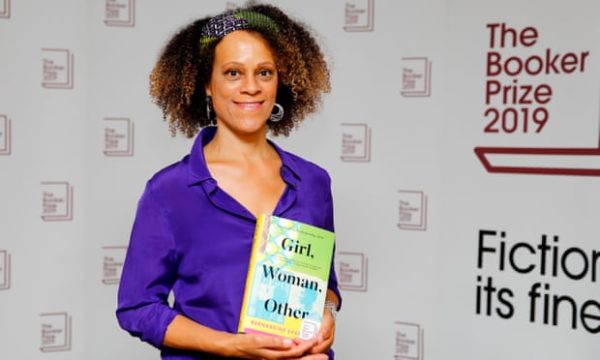
Right after Bernardine Evaristo and Margaret Atwood were announced joint winners of the 2019 Booker Prize for Fiction, the UK’s The Guardian published a piece examining the judges’ decision to settle on two winners. The opinion, by the newspaper’s fiction editor Justine Jordan, was given a curious headline: “Booker judges split between huge event novel and obscure choice.” Atwood’s The Testament is, of course, the huge event novel and Evaristo’s Girl, Woman, Other would be the “obscure” one.
Except there is nothing obscure about a novel that centres the lives of Black British women like never before, in a polyphonic style the author calls “fusion fiction.” Except that this novel only minutes ago made its author the first Black woman and first Black British person to win this prize in a world filled with outstanding Black female writers. Except that Black people, and especially Black women, consistently see their achievements diminished by mainstream media.
There was no way the headline would have escaped Twitter. Kish Widyratna, an editor at the publishing house Picador, spotted it.
Please sort yourselves out and fix this headline @GuardianBooks https://t.co/hDoIKvNwSW
— Commie des Gargoyles (@KishWidyaratna) October 14, 2019
loving that an author whose novel is has been a firm reader & critic favourite, who has received an honour or award almost every year since 1999, including multiple awards/accolades in multiple years, who has published 9 books, is ‘obscure’ lmao check yourselves
— Ka កល្យាណ (@ka_bradley) October 14, 2019
christ alive, HOW did that make it past any editorial person?!
— Heather Parry (@HeatherParryUK) October 14, 2019
Wow!!! Except the so-called obscure choice (someone who has written 9 novels already) was a much better book.
— Zehra Zaidi – SIX 🏆🏆🏆🏆🏆🏆TIMES (@Zehra_Zaidi) October 14, 2019
It’s in the actual article as well!
— Sana Goyal (@SansyG) October 14, 2019
Minutes later, The Guardian changed the headline:
Better! pic.twitter.com/5JXSbmhEmZ
— Commie des Gargoyles (@KishWidyaratna) October 14, 2019
Here’s to hoping that no one else, even unintentionally, takes away from Bernardine Evaristo’s long creative and curatorial brilliance.
Congratulations to Bernardine Evaristo.
Graph image by somethingbookish.com.ng.









COMMENTS -
Reader Interactions